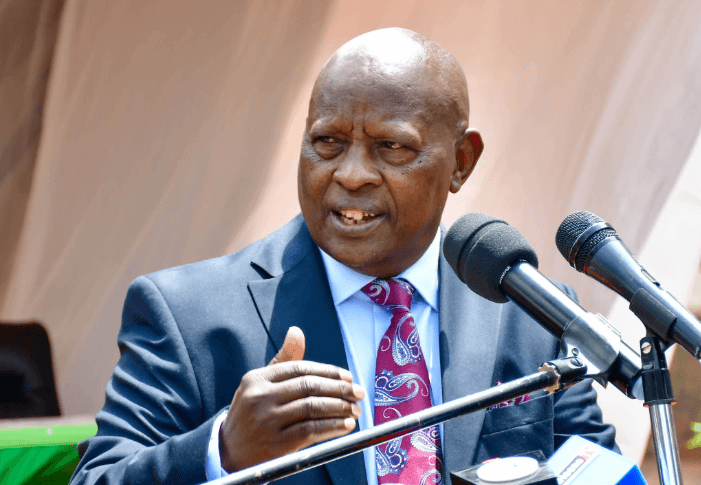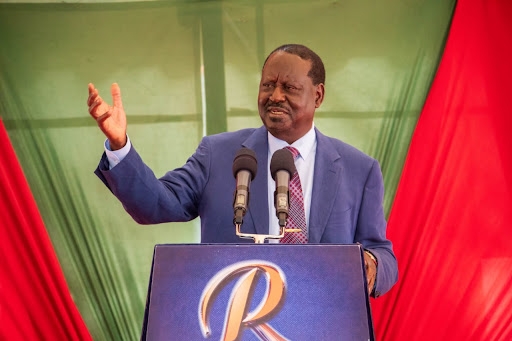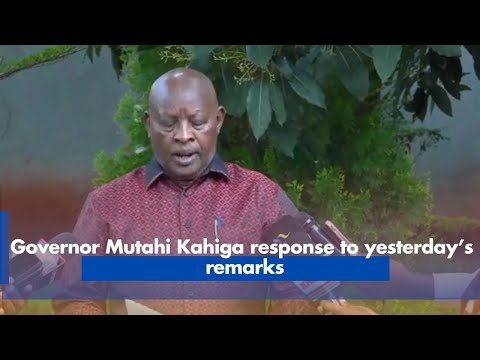Kenyans who want to hold harambees are headed for strict scrutiny under a proposed law requiring them to obtain a licence.
Contributors must declare the source of the contribution and declare the same in their annual tax returns.
The Public Fundraiser Appeals Bill, 2019, says no person or organisation will be allowed to solicit funds from the public without the licence.
The legislation, to be read for the first time this week, proposes the creation of a Public Fundraising Appeals Committee to vet the applications.
Fundraising planners, in particular, would be required to file applications with the County Policing Authority, chaired by a governor, at least 21 days before the funds drive.
At the county level, police commanders, county commissioners, county NIS and DCI chiefs, two MCAs, and representative of various interest groups would belong to the vetting committee.
The team would manage fundraisers at the county level while the national committee would deal with those cutting across devolved units.
We have a very useful concept called Harambee which has helped us to grow since 1963; we have to give it a legal framework so that we don’t abuse it
“A person shall not conduct a public fundraising appeal unless they have applied for, and obtained, a license,” the Bill sponsored by Ndaragwa MP Jeremiah Kioni reads. He is also chairman of the Constitutional Implementation Oversight Committee.
xxKioni told the Star on Sunday/yesterday/ that the proposal would also help deal with campaign financing as leaders would not “blind people by flashing money to hide their qualities or lack of it.”
“We have a very useful concept called Harambee which has helped us to grow since 1963; we have to give it a legal framework so that we don’t abuse it,” the lawmaker said.
Those who call for contributions from members of the public, for say treating a sick relative or educating their children will have to apply for the license.
“Harambees have helped us as a society but we have to deal with people who make money where there is no public need,” Kioni said.
The existing Act does not regulate public collections for charitable and religious purposes and does not provide safeguards from corruption arising from voluntary collections, he said.
The Bill reiterates provisions of the Public Officers Ethics Act that bar state officers from participating in fundraisers.
If approved, the bill would mean elected MPs and MCAs locked out of fundraisers during their term in office. Any violation would attract an Sh800,000 fine.
Harambees have helped us as a society but we have to deal with people who make money where there is no public need.
The proposal would apply to fundraising appeals to the public for public or private benefit.
This means that appeals for school fees, settlement of medical bills, education funding, development projects, disaster mitigation, among other public causes would require a licence.
Appeals that do not extend to members of the public — those within a family — would be exempt, as well as tithes and loan guarantees.
For prudent use of funds raised, the Bill — which repeals the Public Collections Act — gives the office of the Auditor General the power to scrutinise books and accounts related to an appeal.
The Auditor General would work with inspectors appointed by the Public Service Commission and its county equivalents.
It also gives powers to the police to investigate any complaints, misuse, or any issue relating to a harambee.
This is not the first attempt to curb harambees. The first was an effort in 2014 by Anyang’ Nyongo’o, now the Kisumu governor.
Then a senator, Nyong'o proposed that there would be no fundraisers for public projects such as schools, roads, hospitals, water kiosks and so on.
Earlier this year, Suba South MP John Mbadi also proposed radical measures to cap harambee contributions at Sh100,000.
The Minority leader’s move followed concerns the funds drives are being used as conduits to launder money.
xxFears were amplified by a controversial video of clergymen from Bomet asking a senior politician to visit their churches for fundraisers before the lapse of today’s/Monday's deadline for use of the Sh1,000 old currency.
Deputy President William Ruto has been heavily criticised over harambees, a call led by ODM leader Raila Odinga citing fears the funds drives are used to “cleanse corruption money”.
However, he recently contributed towards the reconstruction of a new public primary school in Dagoretti South following the death of eight pupils at Precious Talents Academy.
But during the burial of former TLB boss Hassan Kamwaro, Raila called for a probe into the sources of the monies dished out in the fundraisers.
ACK Archbishop Jackson Sapit in April asked the church to be careful with politicians who "sanitise graft proceeds in church harambees".
Bishop Mark Kariuki and Silas Yego of Deliverance and AIC churches respectively, rebuffed Sapit’s assertions, saying they welcome the cash.
It is these concerns that Kioni said he seeks to address through theBill that spells out strict requirements before approval of a fundraiser.
Organisers would be required to give full names and addresses of the persons intending to conduct them, declare the purpose of the funds drive and also the date for the activity.
They shall also indicate the amount they intend to raise as well as expenses and also state prior receipts of any monies with respect to the fundraising appeal.
Licences issued by the committee will automatically expire after the fundraiser, so each fundraiser would need its own license.
Licenses would be cancelled on grounds of unlawful causes, prejudice to peace, failure to comply with the Act, false information and fraud.
(Edited by V. Graham)











